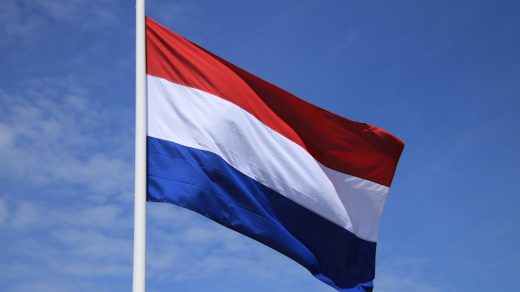
On 8 August, Al-Haq, Al-Haq Europe, Arab NGO Network and Third World Network for Development made a submission to the United Nations Committee on Economic, Social and Cultural Rights (CESCR). The submission examines the obligations of the Netherlands stemming from the International Covenant on Economic, Social, Cultural Rights (ICESCR), particularly as reviewed under General Comment 24, concerning the regulation of business conduct. In particular, the consequences for the Netherlands in light of the International Court of Justice (ICJ) advisory opinion of 19 July 2024 on the Legal Consequences arising from the Policies and Practices of Israel in the Occupied Palestinian Territory, including East Jerusalem, which confirmed Israel’s prolonged breach of the Palestinian People’s right to self-determination- the peremptory norm incorporated in Article 1(1) of the ICESCR- and the systemic discrimination against the economic, social and cultural rights of the Palestinian People contrary to Article 2(2) of the ICESCR.
The submission sets out the Netherlands’ obligations under the Covenant, in regard to its own dealings with Israel and as a home State of companies involved with Israel and in the Occupied Palestinian Territory, in maintaining and entrenching Israel’s settler colonial apartheid regime and unlawful presence in breach of the Palestinian right to self-determination and right of return.
Requirements from the Netherlands regarding its own dealings. The Netherlands must:
- impose an arms embargo on Israel until Palestinian human rights are respected and Israel ends its illegal occupation of the Palestinian territory as rapidly as possible and its genocidal attacks against the Palestinian people in Gaza;
- set up a mechanism (or, where available, utilize existing review mechanisms such as under investment or other agreements) to review its own trade, investment and other business dealings with Israel. End all such dealings and contracts that may entail certain form of direct or indirect assistance to the maintenance of Israel’s settler colonial apartheid regime and illegal occupation of the Palestinian Territory (including, for example, through maintaining normalized preferential treatment extended to Israel under trade and investment agreements);
- end its so-called “Discouragement Policy” regarding Dutch companies as this policy is clearly incompatible with the findings of the 2024 ICJ Advisory Opinion;
- terminate such relations that may contribute to assisting in the maintenance of the illegal situation - the threshold of assessment ought to consider the extent to which these relations legitimize the settler colonial apartheid regime and root causes underpinning the prolonged illegality by Israel;
- recognise that the situation as set out in the ICJ 2024 Palestinian Advisory Opinion, constitutes a regime of prohibited racial segregation and apartheid, under which there is a Third State duty to condemn and not provide assistance to its maintenance under Article 3 of CERD and obligations erga omnes to bring the unlawful conduct to an end.
- refrain from recognizing any territorial or sovereignty claims made by Israel over the occupied Palestinian Territory or any parts of it, including under trade and investment agreements;
- ensure that all Dutch-Israeli settlers are removed from the illegal settlements in the Occupied Palestinian Territory, ceasing immediately all new settlement activities, and where relevant are prosecuted under Dutch law for international crimes.
- cooperate with other UN Member States in relevant fora, such as the Human Rights Council and the General Assembly, as well as other regional and multilateral fora, such as the European Union and the World Trade Organization, to end the normalized status that Israel benefits from in these fora.
Requirements from the Netherlands as home State of companies that have dealings with
Israel or have business relations in Israel. The Netherlands must:
- Clearly communicate with businesses and other entities domiciled or operating in its territory and/or jurisdiction or are otherwise under the Netherland’s control (such as through shareholding) what is required to ensure that business conduct does not cause, contribute or become linked to the violations undertaken by Israel, or contradict and undermine the State’s efforts in fulfilling its own obligations in this context, including in relation to assistance in the maintenance of the illegal situation.
- Enact legislation or undertake executive, administrative or other measures to ensure that the requirements from businesses are clearly established and attached to a clear enforcement regime in case of breach.
- Investigate, and take necessary follow-up action, in relation to cases of potential or ongoing engagement by businesses domiciled or operating in the Netherland’s territory and/or jurisdiction in human rights violations by Israel, including but not limited to those undertaken in the context of illegal Israeli settlements.
- Undertake a thorough due-diligence review of entities that might be exposed to links with Israel’s violations and ensure that they are not engaging in any business, activity or financial support that maintains the unlawful occupation, racial segregation and apartheid or contributes to maintaining it.
- Ensure that all relevant governmental authorities, especially those engaging directly with business enterprises such as trade and investment ministries and investment and export promotion authorities, are well-informed of the requirements and able to effectively communicate it to business entities in line with the Guiding Principles on Business and Human Rights (GPs).
- Ensure that its acts as a Member State of the European Union reflect its obligations under international law, and be held responsible for decisions it makes in the context of the EU, where these decisions are incompatible with international law, including the 2024 ICJ Advisory Opinion – for example by ensuring the termination or suspension
The full submission can be found here.

